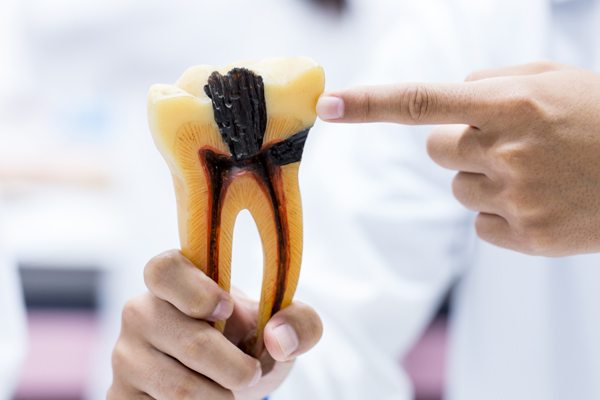Root Canal vs. Extraction: Make the Right Choice for Your Oral Health

Root canal treatment often appears as a reliable option for saving a severely damaged or infected tooth, while extraction removes the tooth entirely. Both options offer advantages and disadvantages, but a few factors help the dentist determine which procedure to perform. Understanding the benefits and considerations of each choice can help you become an active participant in crafting your oral health plan.
Understanding root canal therapy
A root canal procedure targets the infected or damaged pulp. A dentist numbs the area and then creates an opening in the top of the tooth to reach the pulp chamber. The dentist removes decayed tissue, and the inner space is thoroughly cleaned. After cleaning, a biocompatible material fills the canal to prevent further infections. An appropriate restoration, such as a crown, then covers the treated tooth to reinforce structural support.
Root canal therapy allows the tooth to remain functional within the jaw. This approach usually preserves surrounding bone density, maintains natural alignment, and avoids potential gaps that encourage the shifting of neighboring teeth. Retaining natural teeth also supports normal chewing and biting forces, which play a significant role in healthy digestion.
Considering tooth extraction
Extraction involves removing the entire tooth from its socket. This option may become necessary when the tooth's structure is severely compromised or an infection threatens the surrounding bone. Dentists sometimes advise extraction if the tooth is fractured below the gum line or lacks enough healthy tissue to sustain a successful restoration.
Although extraction can relieve pain and remove sources of infection, it creates a noticeable space in the mouth. Therefore, a replacement, such as dental implants, bridge, or partial denture, is necessary to ensure the gap does not lead to shifting of adjacent teeth and possible issues with bite balance. In some cases, an extraction may be more suitable if the tooth is non-restorable, but careful evaluation is always necessary.
Factors influencing the dentist's decision
Before recommending a root canal or extraction, a dentist examines the tooth's structural integrity, the extent of infection or decay, and the patient's overall oral health. Budget, time constraints, and personal preferences may also influence the choice. In many cases, root canal therapy helps preserve a full-functioning tooth, which often promotes more natural chewing and a familiar smile. However, the dentist may recommend an extraction as the more appropriate solution if the tooth has a large-scale fracture or extensive decay that compromises the tooth's foundation.
Restore your oral health at Vineyard Hills Dental Care
Root canal therapy and tooth extraction address severe damage and infection, but the present distinct outcomes for long-term oral health. A root canal retains the natural tooth whenever possible, preserving important structures that help maintain alignments and normal biting forces. An extraction removes the source of pain and infection but leaves a space that will require an artificial replacement. If you are having problems with one or multiple teeth, contact Vineyard Hills Dental Care. We can schedule an evaluation to determine the most effective solution to fit your needs.
Request an appointment here: https://www.drtimhubbs.com or call Vineyard Hills Dental Care at (925) 233-1143 for an appointment in our Livermore office.
Check out what others are saying about our dental services on Yelp: Root Canal Treatment in Livermore, CA.
Recent Posts
Preventive dentistry deals with dental procedures to prevent dental issues, and it is critical for anybody who wants to keep their natural teeth for the rest of their life. Dentists used to spend most of their time treating dental issues rather than preventing them.Due to people's overly busy schedules, it is easy to put off…
The role of preventative dentistry is to minimize the risk of future dental issues in patients. Read on to learn some tips that encourage the prevention of oral issues. If you have experienced and treated dental issues in the past, you will attest that it is better to prevent them from happening in the first…
Many individuals are apprehensive about finding a restorative dentist. They want a dentist who can help them restore their smile to look more natural and appealing. This field of dentistry is concerned with repairing damage to the teeth and restoring normal dental functions.The restorative dentist must be ready to listen to their patients about their…
If you have an early-stage cavity or even more serious damage to your tooth, dental restoration options can help you keep your teeth strong and healthy by reinforcing the protective layer of your tooth enamel, helping it rebuild its structural strength over time. While many dental restoration options can be used in conjunction with one another,…


